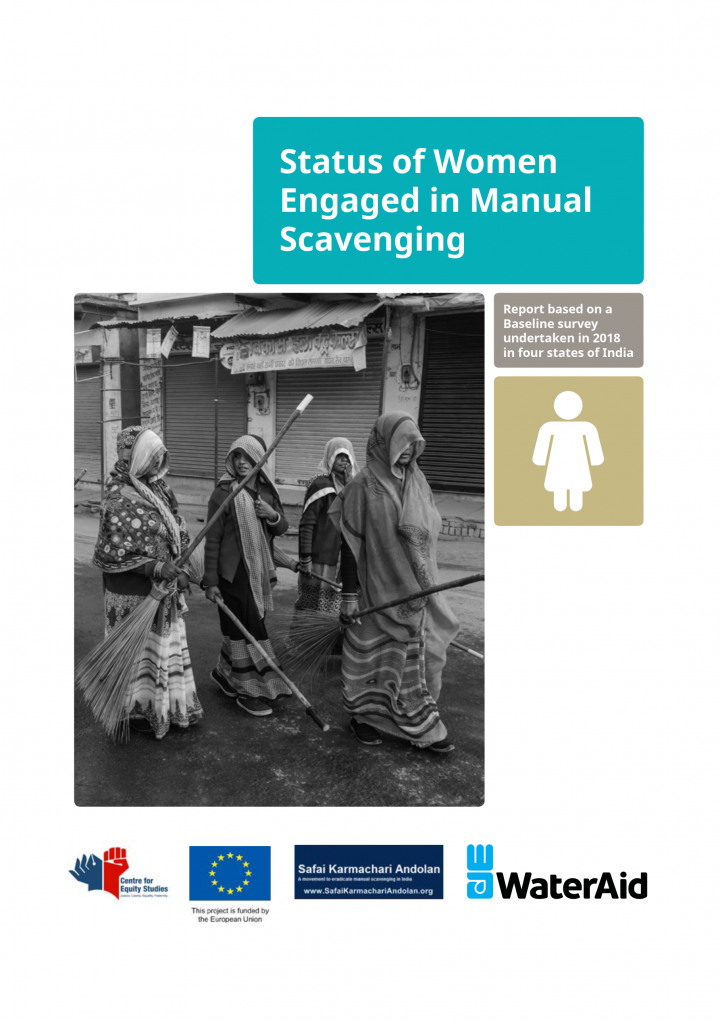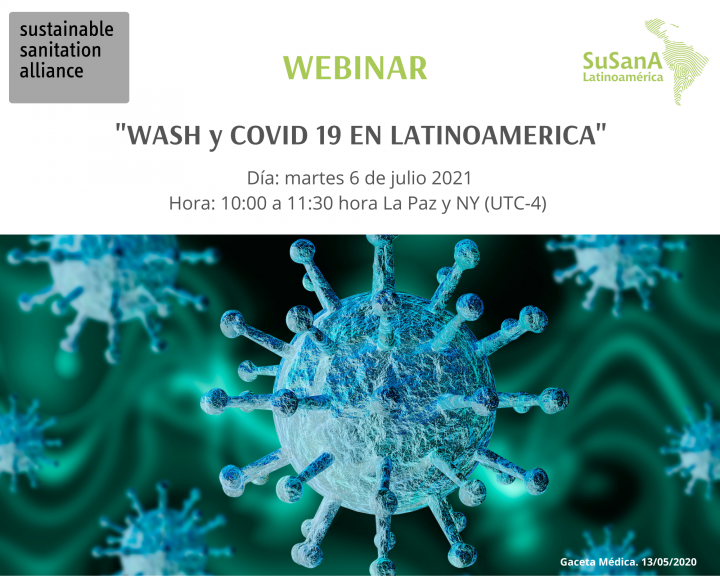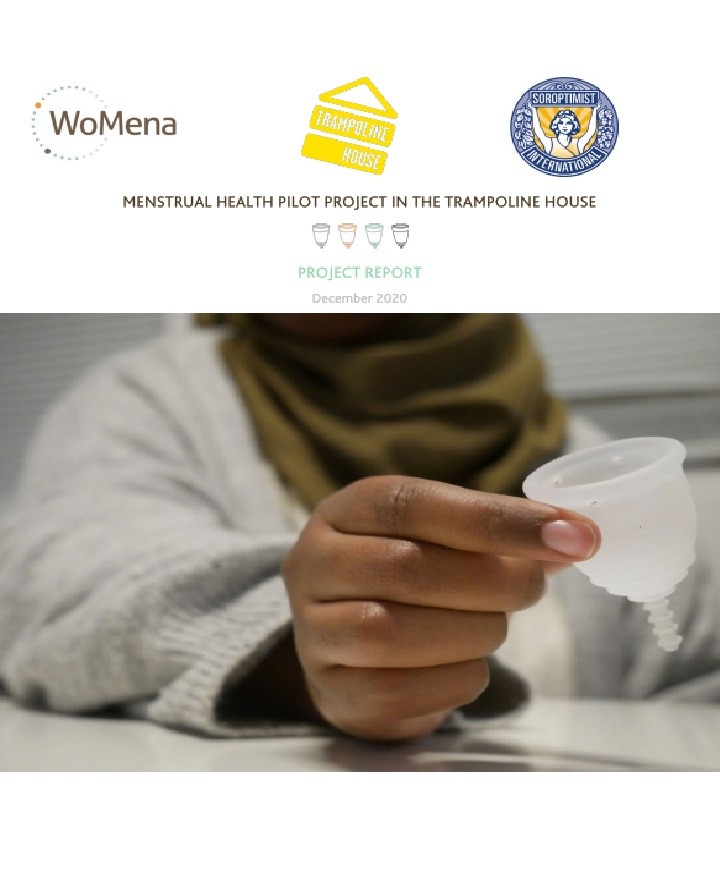Searching for information on Sanitation Workers?
The Sanitation Workers Knowledge + Learning Hub is the best source for all current news, trends, articles and updates on sanitation workers rights around the world.
The baseline survey was conducted in the four states of Bihar, Madhya Pradesh, Uttar Pradesh and Jharkhand. This report has analysed the data generated for the following areas:
a. Manual scavenging (MS) and dry latrines
b. Prevalence of stigma, discrimination, untouchability, gender and caste-based discrimination and violence
c. Participation in community led initiatives for rights and …
The rapid assessment attempts to collect information on the knowledge and awareness about transmission, symptoms, prevention and treatment of coronavirus, hand hygiene practices and concerns of sanitation workers and solid waste collectors about Covid-19 pandemic, the kind of safety measures put in place to protect these workers and the gaps that exist in terms of safety measures. Using …
While sanitation workers already face several health and safety risks, financial challenges and stigma due to the nature of their work and caste-based discrimination, the COVID-19 pandemic has further added to their challenges and vulnerabilities. The Urban Management Centre and WaterAid India jointly conducted a rapid assessment to understand the health, safety and social security challenges …
The objective of the seminar was to enable anyone responsible for the sustainable operation of
on-site sanitation systems to find out about new developments in the field, and to share their
experience with counterparts from elsewhere in Southern Africa and the world.
The seminar was split across six sessions and ended with two field visits (hosted by eThekwini's
Water and Sanitation …
The COVID-19 pandemic has impacted our lives since early 2020. Children suffer especially under the outbreak, as it is estimated that, globally, over one billion school children are staying home (as at June 2020) with a high number of children not continuing their education online. Nevertheless, the COVID-19 outbreak has been addressed and controlled in some countries, and gradually workplaces, …
One of the largest constraints that cleaners experience is the lack of WASH, and formal training on IPC, PPE, and hand hygiene. A needs assessment study conducted in 56 healthcare facilities throughout Bangladesh, India, The Gambia, and Zanzibar reported that on average less than a third delivered formal training to their cleaning staff. 4 Training is essential in ensuring a safe and clean …
One of the main objectives of development practitioners is to enable people to adopt and practice positive behaviours that help them to improve the quality of their lives. Development projects frequently make assumptions about why people do not follow the positive behaviors these interventions promote. However, such assumptions are often wrong and decrease the effectiveness of well-intended …
Pocket charts and participatory ranking are two useful methodologies that can help to identify differences in experiences and opinions of different groups in the community, as well as to understand the scale of a problem. As pocket chart voting can be done in private, this method could be well suited for identifying the experiences women and girls or other community members have of harassment or …
Unless strategies are found to galvanise rural communities and create a demand for sanitation, we cannot achieve the United Nations Millennium Development Goal of halving the 2.4 billion people without sanitation by the year 2015. This study describes an innovative methodology used in Zimbabwe—Community Health Clubs—which significantly changed hygiene behaviour and built rural demand for …
This Handbook has been prepared as a training and field guide for designing, implementing and managing communication strategies for development purposes based on the results of field Participatory Rural Communication Appraisal (PRCA). The book is a follow up to Participatory Rural Communication Appraisal: Starting with the People. As a logical continuation of the intervention initiated through …
Inadequate hygiene and sanitation remain leading global contributors to morbidity and mortality in children and adults. One strategy for improving sanitation access is community-led total sanitation (CLTS), in which participants are guided into self-realization of the importance of sanitation through activities called “triggering.” This qualitative study explored community members' and …
The Evaluation of Humanitarian Action Guide supports evaluation specialists and non-specialists in every stage of an evaluation, from initial decision to final dissemination.
A pilot version of this Guide was first released in June 2013, following a three-year drafting process led by ALNAP, co-authors John Cosgrave and Margie Buchanan-Smith, and supported by an inter-agency advisory …
Despite great coverage in 2020 by messaging on lifesaving issues (COVID-19: 99% people, cyclone preparedness: 98% people) there are variations of level of access to information by sex, age, disability, and other vulnerabilities (JMSNA 2020). Restricted mobile and internet connection prevented people from receiving information as well as reporting problems. Reduced footprint of staff/volunteers …
The intent of this guidance note is to increase awareness among CARE’s WASH practitioners of gender issues, ensuring emergency WASH programs are viewed with a gender lens. The content is not original, rather an amalgamation of various guidance and best practice, distilled here to provide a more concise reference tool for CARE’s WASH staff to meet minimum WASH and gender equality standards.
Using Cash and Voucher Assistance (CVA) for hygiene items may give women and girls more freedom of choice to select the sanitary materials they prefer, are used to and feel most comfortable using. Using vouchers instead of distributions was also found to increase beneficiary satisfaction, be more convenient and reduce security risks associated with distributions, increase revenue of local …
There is an increasing awareness among humanitarian actors, including those within the Red Cross Red Crescent (RCRC) Movement, of the importance of improving environmental sustainability of programming and operations. Many are recognising that the deteriorating state of the environment can often be a trigger for crises and disasters. There is an urgent need to break the cycle between conflicts, …
The Guidance Note: Integrating Menstrual Hygiene Management (MHM) into Ebola Response aims to provide streamlined guidance and practical insights to support Ministries of Health, organizations and agencies seeking to integrate menstrual hygiene management (MHM) into their Ebola Virus Disease (EVD) response. This guidance note was informed by a global desk review and key informant interviews with …
Sanitation for Millions has assessed its interventions in the three partner countries Jordan, Uganda and Pakistan in the context of the COVID-19 pandemic and identified various WASH-related measures which represent an adequate and effective response to COVID 19 in particular and to pandemics and infection control in general.
Handwashing is one of the core activities carried out regarding safe …
En el inicio de COVID 19, la Sesión Stepping Stone - Capítulo de América Latina compartió ejemplos de soluciones y acciones durante la situación de pandemia sobre los siguientes temas.
1. Campaña Nicaragua Saludable y el Análisis de los retos de los CAPS para asegurar la sostenibilidad de los servicios de agua potable en el contexto de COVID 19
2. Covid-19 y las barreras al agua …
Female asylum seekers and refugees face challenges in access to Sexual and Reproductive Health (SRH) care and face disproportionate outcomes. Menstrual Health Management (MHM) has also been noted as a concern, particularly relating to a lack of knowledge and access to appropriate management methods. Implications for poor MHM are wide reaching, but there is little data relating to MHM and female …
Market based programming is increasingly heralded as having a critical place in the future of humanitarian programming. The proposed benefits of working through existing market systems include improvements to speed, efficiency and effectiveness of programming and increased beneficiary dignity and choice. Advocates for market based approaches claim that, where feasible, they promote economic …
Globally, more than a billion people—approximately 15 percent of the world’s population, or one in seven persons—have disabilities. Of those, 80 percent live in developing countries. This number is expected to increase as the prevalence of disability is impacted by disease, war and conflict, natural disasters, and road traffic injuries, among other factors. In addition, persons over the age …








































